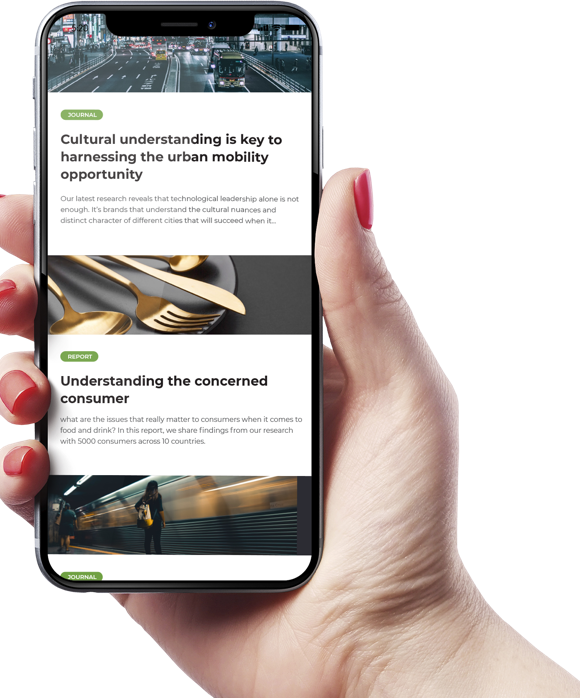AI, or Artificial Intelligence, is changing the game in marketing and market research, helping us understand what customers want and making smarter business moves. Experts say that
AI in marketing will become a whopping $78.8 billion industry by 2030! This goes to show how important AI is becoming in helping brands create better strategies and connect with people.
AI allows brands to understand their customers better, make quick decisions, and offer customers exactly what they are looking for. In other words, AI is letting brands step up their game, setting new standards in the market, and improving every step of the customer’s journey with the brand. This means brands can form stronger and more personal connections with their customers.
But the rise of AI also means our jobs in marketing and market research are changing. Some roles are even disappearing because of the increase in automation and the use of AI. This makes it vital for us to be open to change and learn new skills. It’s not about fighting against the latest technology; it’s about learning how to use it to our advantage and stay relevant in our careers.
Navigating the AI Revolution in Marketing and Market Research
Artificial Intelligence, or AI, is changing how we look at data and understand consumers in marketing and market research. It’s a big deal because it’s transforming how we work and make decisions.
AI: Transforming Data and Understanding Consumers
AI helps us gather and analyse data quickly, giving us new insights into consumers’ wants. This means we can create marketing strategies more in tune with consumer needs and desires. We can understand consumer behaviour, preferences, and trends like never before, allowing us to be more effective and creative in our strategies.
How Automation is Changing Our Roles
With AI and automation, many tasks that we used to do manually can now be done by machines. This can be scary because it means some traditional roles and tasks in marketing and market research are changing or even disappearing. But it’s not all bad news! Automation can take care of repetitive tasks, freeing us to focus on more critical and creative aspects of our work. It’s all about adapting and finding new ways to use our skills in this changing landscape.
The Move to Data-Driven Strategies
Now more than ever, we’re relying on data to make decisions in marketing. This shift towards data-driven strategies is helping us make more informed and effective decisions. We can see what works and what doesn’t and adjust our strategies in real time. It’s making us more flexible and allowing us to respond quickly to changes in the market.
Understanding these disruptions and changes is crucial. It helps us see where we fit in and how we can use AI and automation to our advantage. It’s all about staying informed, adapting to changes, and finding new and exciting ways to use our skills and knowledge in the world of marketing and market research.
Building the Backbone: Mastering Essential Hard Skills
Hard skills form the backbone of our professional arsenal, helping us stay relevant and effective in the increasingly competitive and AI-driven marketing and market research landscape. By mastering these, we can ensure that our strategies are innovative and resonate well with our audience.
Data Analysis and Interpretation
Analyzing large sets of data is a crucial skill in today’s market. It allows us to understand consumer behaviour, trends, and preferences, helping us make well-informed decisions.
Importance of Analyzing Large Data Sets: Grasping the patterns in vast data sets helps craft strategies that resonate well with the target audience.
Statistical Knowledge and Application: Being savvy with statistics enables us to interpret data accurately, making our insights more reliable and effective.
Digital Literacy
Being digitally literate is more crucial now than ever. It helps us understand and use various AI tools and digital platforms effectively.
Familiarity with AI Tools and Technologies: Knowing how to use AI tools empowers us to leverage them to enhance our strategies and understand the market.
Knowledge of Digital Platforms and Software: Understanding various digital platforms and software equips us with the capability to reach and impact our audience more effectively.
SEO and SEM Skills
Skills in Search Engine Optimisation (SEO) and Search Engine Marketing (SEM) are crucial in enhancing a brand’s online presence.
Understanding of Search Engine Algorithms: A deep knowledge of how search engines work allows us to optimise content effectively, making it easier for consumers to find us online.
Strategies for Enhancing Online Presence: Implementing effective SEO and SEM strategies ensures that our content reaches a wider audience, increasing our brand’s visibility and impact.
User Experience Design
Creating a user-friendly experience is essential in connecting with the audience.
Design Thinking Approach: Adopting a design thinking approach helps develop innovative and user-centric solutions.
Importance of Customer-Centric Design: Focusing on customer-centric design ensures that our strategies meet the needs and preferences of the consumers, leading to higher satisfaction and engagement.
Nurturing the Soul: Cultivating Essential Soft Skills
Complementing hard skills with essential soft skills is crucial. These soft skills enable us to resonate with our audience, embrace innovations, and approach problems and strategies holistically and empathetically.
Emotional Intelligence
Being emotionally intelligent is all about understanding and managing our emotions and the emotions of others.
Developing Empathy and Understanding: Empathy allows us to connect with our audience on a deeper level, understanding their needs and concerns genuinely.
Importance of Human Connection in Brand Building: Forming real human connections can help build a brand that people trust and relate to.
Adaptability
Being adaptable means being open to new ideas and changes, and it’s super important in our fast-paced world.
Embracing Change and New Technologies: Being open to trying out new technologies and ways of doing things keeps us ahead in the game.
Learning and Development Mindset: Having a mindset focused on learning and growing helps us to keep improving and developing our skills.
Critical Thinking
Critical thinking helps us make logical and informed decisions by evaluating situations objectively.
Problem-Solving in Complex Scenarios: Thinking critically helps us solve problems effectively, even when they are complicated.
Analyzing Situations Objectively: Looking at situations without bias allows us to see the complete picture and make better decisions.
Creative Thinking
Thinking creatively helps us develop new and innovative ideas that can make our brand stand out.
Developing Innovative Strategies: Creative thinking leads to innovative strategies that can differentiate our brand in the market.
Differentiating Brands in the Market: Coming up with unique ideas and approaches helps make our brand memorable and attractive to consumers.
Paving the Way to Tomorrow: Strategies for Upskilling and Embracing Change
By implementing the strategies below, we can navigate the sea of change with confidence and foresight, ensuring our skills are refined, our knowledge is vast, and our approaches are innovative and flexible.
Embracing these practices will empower us to forge ahead, becoming the architects of our professional destinies in the transforming world of marketing and market research.
Continuous Learning
The path to adaptation and growth is paved with constant learning.
- Engage in Online Courses and Certifications: Delving into online courses helps us acquire new skills and knowledge, keeping us abreast of the latest trends and technologies.
- Attend Workshops and Conferences: Being a part of workshops and conferences allows us to gain insights from industry leaders and enhances our understanding of the evolving market dynamics.
Networking
Building connections within our industry can open doors to new opportunities and insights.
- Connect with Industry Experts and Peers: Networking with peers and experts provides different perspectives and insights, enabling us to stay informed and inspired.
- Participate in Community Discussions and Forums: Actively engaging in discussions helps in sharing knowledge and learning from the experiences of others in the community.
Staying Informed
Keeping our finger on the pulse of the industry helps us stay ahead of the curve.
- Regularly Update Knowledge on Industry Trends and Developments: Staying updated on industry developments ensures that we are well-informed and can adapt our strategies effectively.
- Follow Influential Thought Leaders and Publications: Regularly reading articles and following thought leaders helps us gain deeper insights into industry trends.
Charting the Course: Preparing for Evolving Roles in Marketing
With the rise of AI, certain roles within marketing and market research may see a decrease in demand due to automation. Navigating this new landscape requires a strategic approach to professional development and career planning.
Identifying Roles Susceptible to Automation
Understanding which roles are more likely to be affected by automation is the first step in proactively preparing for the future. Assessing the landscape and identifying the areas most likely to experience changes allows us to make informed decisions about our career paths and development focus.
Diversifying Skill Set and Gaining Cross-Functional Knowledge
Building a diverse skill set and acquiring knowledge across different functions are crucial in creating a versatile professional profile. This versatility not only enhances our adaptability but also opens up a myriad of opportunities in various domains within the industry.
Proactively Seeking New Opportunities within the Organisation or Industry
Proactively seeking new roles or opportunities is essential in staying ahead of the curve. Exploring different avenues within the organisation or the broader industry can provide a richer, more diversified experience, paving the way for continued growth and learning in the ever-evolving marketing landscape.
By adopting a strategic and proactive approach to career planning and professional development, we can ensure our continued relevance and contribution in a future where the roles and demands of marketing and market research continually evolve and adapt to technological advancements and the rise of AI.
Concluding Thoughts: Stepping into the Future
The journey through the transformative world of marketing and market research is one marked by constant learning, resilience, and a forward-thinking mindset.
The pace at which technology, especially AI, is evolving necessitates a perpetual learning mindset and the development of a myriad of skills. These tools will enable us to stay relevant and effective in our roles, regardless of how the professional landscape morphs.
It’s vital to approach our field’s inevitable changes and advancements with a positive and open mindset. The transformations occurring are not roadblocks, but rather, they are gateways to new possibilities and avenues for growth, innovation, and success. It’s our responsibility to leverage these changes to enhance our strategies, connect with our audience more effectively, and create meaningful impacts in our field.
Get regular insights
Keep up to date with the latest insights from our research as well as all our company news in our free monthly newsletter.





 Senior Marketing Executive
Senior Marketing Executive Sales & Marketing
Sales & Marketing General Manager PR -Internal Communications & Government Affairs
General Manager PR -Internal Communications & Government Affairs Vital Strategies
Vital Strategies
 Customer Intelligence Director
Customer Intelligence Director